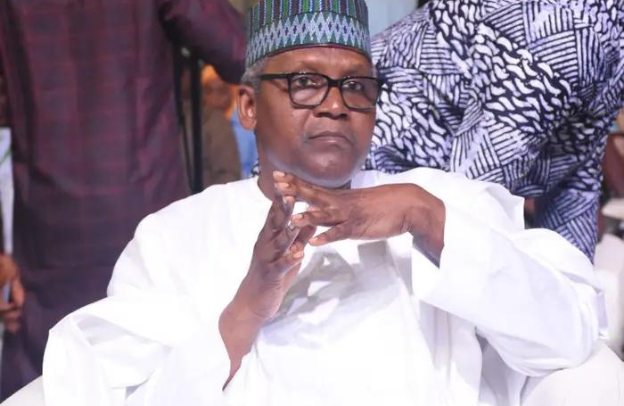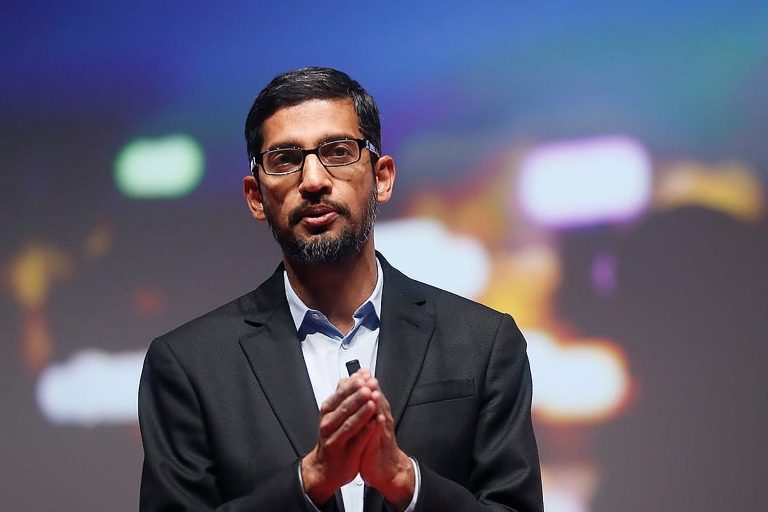Africa’s Billionaires 2024: What Is New This Year?

In the ever-shifting landscape of Africa’s economic elite, the fortunes of the continent’s wealthiest individuals experienced a modest resurgence in 2024, albeit still below their historical peaks. According to the latest iteration of the Forbes List of Africa’s Richest, the combined net worth of the top 20 billionaires stood at $82.4 billion, representing a marginal uptick of $900 million from the preceding year.
Want to learn more about storytelling? Start by downloading the first chapter of The Storytelling Mastery.
Otedola’s Resurgence Marks Turnaround
The notable contributor to this year’s rebound was Nigeria’s Femi Otedola, whose return to the limelight after a hiatus since 2017 injected fresh momentum into Africa’s billionaire cohort.
Otedola’s strategic divestment from the volatile oil sector and astute investments in the power generation industry saw his fortune climb to $1.1 billion, with his 73% stake in Geregu Power Plant serving as the primary driver behind his resurgence.
This propelled him to the 20th spot on the list, reaffirming Nigeria’s prominence in the region’s wealth landscape.
See also Nigeria’s Economy Challenges, The Way Forward, And Obi’s Economic Policies
Economic Headwinds Persist
However, against this backdrop of individual triumphs, the broader economic challenges facing Africa continue to cast a shadow over the continent’s wealth-creation potential.
Charles Robertson, Head of Macro Strategy at FIM Partners, underscored the persistent hurdles confronting entrepreneurs, including limited access to capital and volatile market conditions exacerbated by political instability.
Familiar Faces Dominate Rankings
Unsurprisingly, entrenched family dynasties and individuals with close ties to government entities continued to dominate the upper echelons of Africa’s billionaire roster.
Alike Dangote of Nigeria maintained his stranglehold on the top spot for the 13th consecutive year, despite navigating through political uncertainties and currency devaluations.
Meanwhile, South Africa’s Johann Rupert and Nicky Oppenheimer retained their positions within the top three, albeit with slight fluctuations in their fortunes.
What Alike Dangote’s supremacy on the Forbes list of Africa’s Richest? Well, that can be attributed to several key factors. Let’s look at three of them:
Diversified Business Empire:
Alike Dangote’s vast and diversified business empire, spanning sectors such as cement, sugar, and flour milling, has contributed significantly to his wealth accumulation.
Dangote Cement stands as Africa’s largest cement producer, providing a stable revenue stream and bolstering its position as a dominant figure in the continent’s industrial landscape.
Political Connections and Stability:
Dangote’s close ties with political elites in Nigeria, coupled with the relative stability of his business operations amidst political uncertainties, have served as a crucial advantage.
See also Aliko Dangote Quote: Embark on the Journey of Entrepreneurship with Purpose and Tenacity
Despite challenges such as currency devaluations and regulatory changes, Dangote’s ability to navigate Nigeria’s complex political terrain has helped safeguard his wealth and maintain his position at the helm of Africa’s billionaire rankings.
Strategic Vision and Expansion:
Alike Dangote’s strategic vision and relentless pursuit of expansion opportunities have been instrumental in his wealth accumulation journey.
From expanding his cement empire beyond Nigeria’s borders to venturing into other sectors like oil refining and agriculture, Dangote has demonstrated a keen understanding of market dynamics and capitalized on emerging opportunities to solidify his position as Africa’s preeminent billionaire.
Contrasting Fortunes and Challenges
The fortunes of billionaires on the Forbes list of Africa’s Richest provide a nuanced glimpse into the continent’s economic landscape. Amidst the backdrop of wealth accumulation and expansion, stark disparities emerge, reflecting both triumphs and tribulations.
For instance, people like Christoffel Wiese of South Africa have exemplified adept maneuvering within the market, strategically leveraging investments and divestments to fortify their financial standing.
Wiese’s savvy business acumen and astute decision-making have propelled him to capitalize on emerging opportunities, thereby augmenting his wealth.
However, juxtaposed against such success stories are narratives of struggle and adversity, typified by individuals like Algerian magnate Issad Rebrab.
Encumbered by legal entanglements and susceptible to market volatility, Rebrab’s journey has been fraught with challenges that have undermined his net worth, underscoring the precarious nature of wealth accumulation within Africa’s business landscape.
These divergent trajectories underscore the multifaceted nature of economic prosperity on the continent, where resilience and resourcefulness often intersect with instability and uncertainty.
While some billionaires navigate through turbulent waters with relative ease, leveraging their expertise and connections to thrive, others find themselves grappling with systemic obstacles and external pressures that impede their financial ascent.
This dichotomy serves as a sad reminder of the complexities inherent in wealth creation within Africa’s dynamic and evolving economic environment, where fortunes can be both made and unmade in the blink of an eye.
See also Empowering Africa’s Women: Breaking Barriers in the Private Sector
Regional Disparities Persist
In terms of geographical distribution, South Africa continued to command a significant presence, claiming six spots on the ranking, followed by Egypt with five and Nigeria with four.
However, the representation of other African nations remained relatively sparse, underscoring the ongoing challenges of wealth creation and retention across the continent.
Addressing these regional disparities would require a serious approach aimed at fostering inclusive economic growth and opportunity across the continent. Here are three key suggestions:
Investment in Infrastructure and Connectivity:
To bridge the gap between regions, governments and private sector entities should prioritize investment in infrastructure development, particularly in underserved areas.
Improving transportation networks, energy infrastructure, and digital connectivity can unlock economic potential in regions that have historically been marginalized.
By enhancing accessibility and reducing logistical barriers, businesses and entrepreneurs in these regions can better participate in national and regional economies, ultimately contributing to wealth creation and reducing regional disparities.
Support for Small and Medium Enterprises (SMEs):
Small and medium enterprises (SMEs) play a vital role in driving economic growth and creating employment opportunities, especially in regions with limited access to large-scale industries.
Governments and financial institutions should implement policies and initiatives aimed at supporting the growth of SMEs, such as access to affordable credit, business development services, and technical assistance.
By empowering local entrepreneurs and fostering a conducive business environment, SMEs can become engines of economic development, mitigating regional disparities and promoting inclusive growth.
Regional Integration and Cooperation:
Promoting regional integration and cooperation can unlock synergies and create opportunities for economic development across borders.
Regional trade agreements, harmonization of regulatory frameworks, and cross-border infrastructure projects can facilitate trade and investment flows, enabling regions to leverage their comparative advantages and strengthen their competitiveness.
By fostering collaboration among neighboring countries, regional disparities can be addressed through collective efforts aimed at harnessing regional resources and promoting shared prosperity.
We understand that there is no magic solution. However, by implementing these suggestions, African countries can work towards reducing regional disparities and creating an environment conducive to inclusive economic growth and development across the continent.
Conclusion on Africa’s Billionaires 2024: What Is New This Year
In conclusion, while the modest rebound in 2024 offers a glimmer of hope for Africa’s economic resurgence, formidable obstacles persist, underscoring the imperative for sustained efforts to foster a conducive environment for wealth creation and equitable prosperity across the continent.
These challenges need to be addressed for the good of contusive businesses in the continent.
Want to learn more about storytelling? Start by downloading the first chapter of The Storytelling Mastery.




